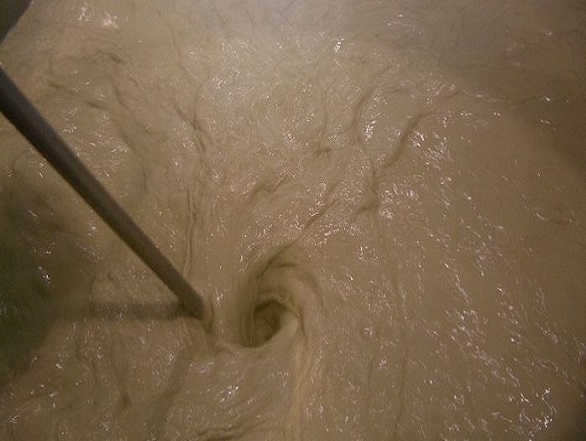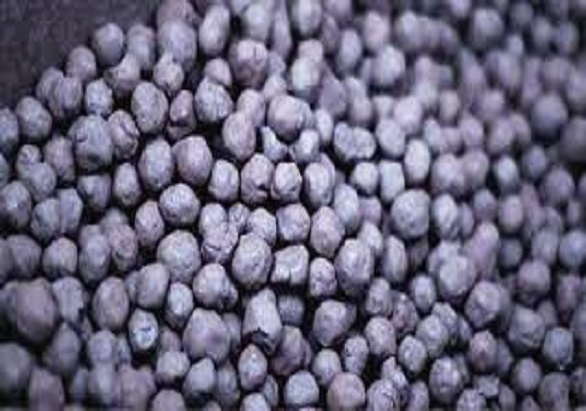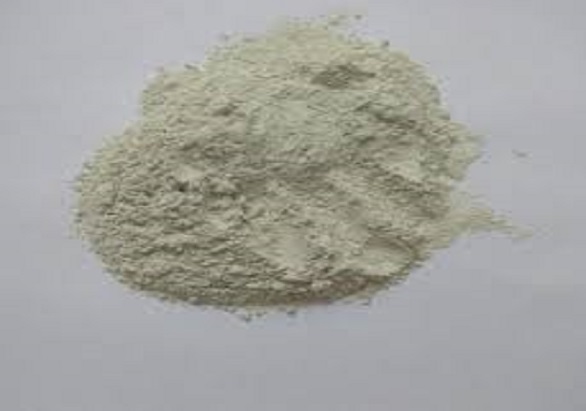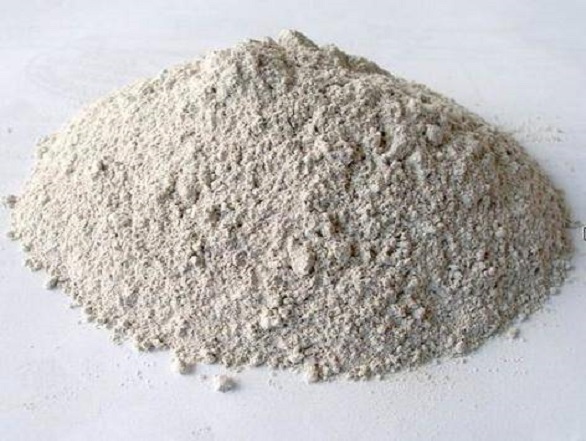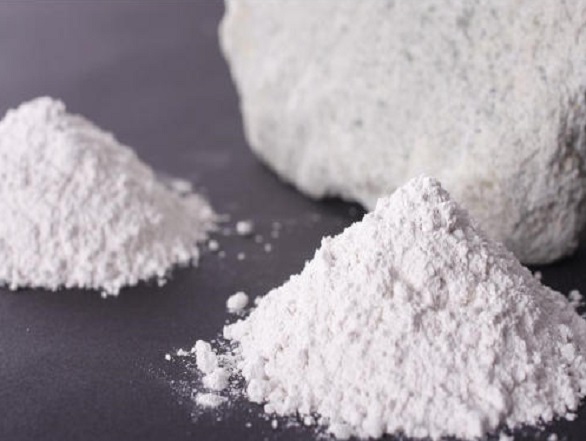Bentonite
Bentonite is an absorbent swelling clay consisting mostly of montmorillonite. It usually forms from weathering of volcanic ash in seawater, which converts the volcanic glass present in the ash to clay minerals. Bentonite beds are white or pale blue or green in fresh exposures, turning to a cream color and then yellow, red, or brown as the exposure is weathered further. As a swelling clay, bentonite has the ability to absorb large quantities of water, which increases its volume by up to a factor of eight.This makes bentonite beds unsuitable for building and road construction. However, the swelling property is used to advantage in drilling mud and groundwater sealants. The montmorillonite making up bentonite is an aluminium phyllosilicate mineral, which takes the form of microscopic platy grains. These give the clay a very large total surface area, making bentonite a valuable adsorbent. The plates also adhere to each other when wet. This gives the clay a cohesiveness that makes it useful as a binder and as an additive to improve the plasticity of kaolinite clay used for pottery. One of the first findings of bentonite was in the Cretaceous Benton Shale near Rock River, Wyoming. The Fort Benton Group, along with others in stratigraphic succession, was named after Fort Benton, Montana, in the mid-19th century by Fielding Bradford Meek and F. V. Hayden of the U.S. Geological Survey. Bentonite has since been found in many other locations, including China and Greece. Total worldwide production of bentonite in 2018 was 20,400,000 metric tonss.
Product Details
| Suspension Properties | Standard | Results |
| Viscometer at 600 r/min | Minimum 30 | 32 |
| Yield Point/ Plastic Viscosity Ratio | Maximum 3 | 0.9 |
| Filtrate volume | Maximum 15 ml | 15 |
| Residue of Diameter greater than 75µm | Maximum Mass Fraction 4% | Intractable |
| Use | Drilling | Drilling |
| packaging | loose | Bulk, loose, Jumbo bag |
| -- | --- | --- |
Product Details
| Suspension Properties | Standard | Results |
| Water absorption | Minimum 600 | 800 |
| Yield Point/ Plastic Viscosity Ratio | Maximum 3 | 0.9 |
| Filtrate volume | Maximum 15 ml | 15 |
| Residue of Diameter greater than 75µm | Maximum Mass Fraction 4% | Intractable |
| Use | Drilling | Drilling |
| packaging | loose | Bulk, loose, Jumbo bag |
| -- | --- | --- |
Product Details
| Suspension Properties | Standard | Results |
| Viscometer at 600 r/min | Minimum 30 | 32 |
| Yield Point/ Plastic Viscosity Ratio | Maximum 3 | 0.9 |
| Filtrate volume | Maximum 15 ml | 15 |
| Residue of Diameter greater than 75µm | Maximum Mass Fraction 4% | Intractable |
| Use | Drilling | Drilling |
| packaging | loose | Bulk, loose, Jumbo bag |
| -- | --- | --- |
Product Details
| Suspension Properties | Standard | Results |
| Viscometer at 600 r/min | Minimum 30 | 32 |
| Yield Point/ Plastic Viscosity Ratio | Maximum 3 | 0.9 |
| Filtrate volume | Maximum 15 ml | 15 |
| Residue of Diameter greater than 75µm | Maximum Mass Fraction 4% | Intractable |
| Use | Drilling | Drilling |
| packaging | loose | Bulk, loose, Jumbo bag |
| -- | --- | --- |
Product Details
| Suspension Properties | Standard | Results |
| Viscometer at 600 r/min | Minimum 30 | 32 |
| Yield Point/ Plastic Viscosity Ratio | Maximum 3 | 0.9 |
| Filtrate volume | Maximum 15 ml | 15 |
| Residue of Diameter greater than 75µm | Maximum Mass Fraction 4% | Intractable |
| Use | Drilling | Drilling |
| packaging | loose | Bulk, loose, Jumbo bag |
| -- | --- | --- |
